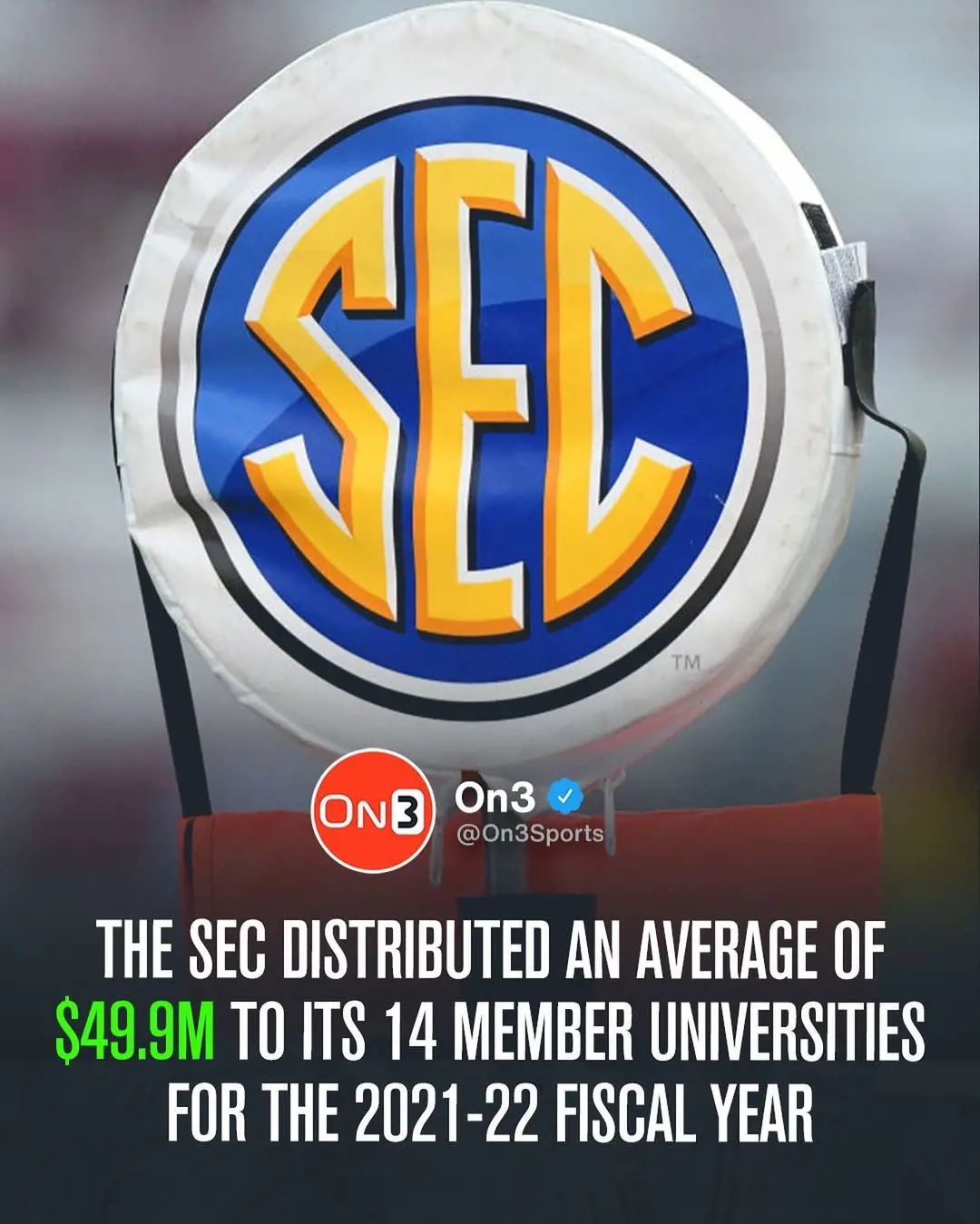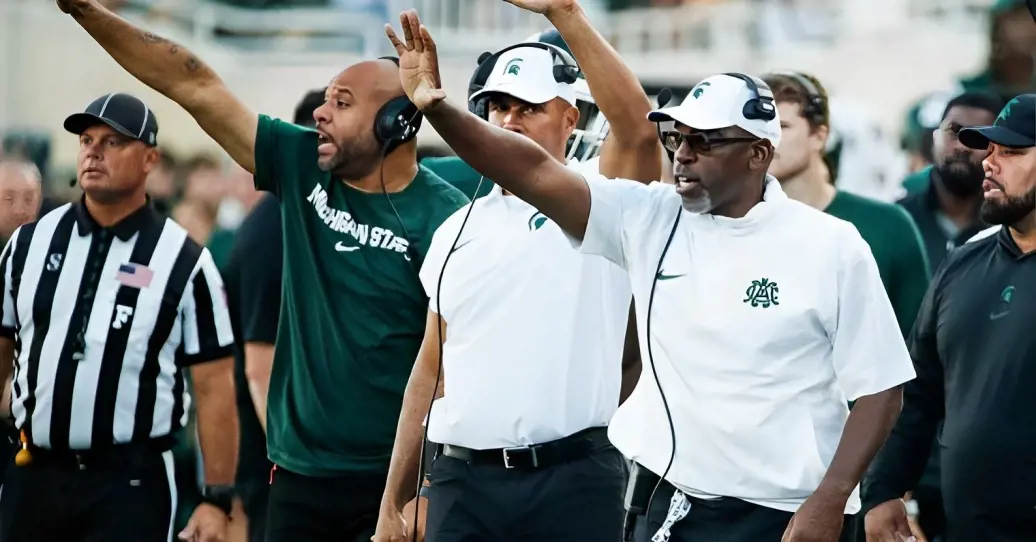FSU leaving ACC is getting real because Florida State is unhappy with the Atlantic Coast Conference. Seminoles is looking to move to SEC after 2023.
The Athletic Director of the Seminoles made it clear that they are not happy with the current structure of the ACC. Michael Alford pointed out that something needs to be done to close the growing revenue gap with other conferences.
In the recent general meeting with the FSU Board of Trustees, he said, "We have to act because we are a brand. We are a big brand, and we're driving the media value at this conference."
However, it is not the first time this issue has arisen. The Seminoles have been here for around a decade, with rumors of leaving the conference and Florida is still a member of the Atlantic Coast Conference.
Clemson is also considering a move away to a better conference. Things are not the same this time, with teams seriously considering a switch.
So, the question arises, will Florida remain in the ACC or will they join the SEC like Texas and Oklahoma?
Why Does Florida State Seminoles Want to Leave the ACC?
Michael Alford made a strong case for the Seminoles to consider leaving the ACC. It is obvious that the Atlantic Coast Conference is far behind its peers and competitors across the nation in terms of revenue at the moment.
According to the reports, ACC is falling behind both the Big Ten and the SEC by almost $30 million per year. It is a massive loss when factoring in the compounding value over the next 10 years.
Atlantic Coast's current television deal with ESPN runs till 2036. Thus, it is pretty evident that revenues to the member universities will not increase substantially compared to their competitors.
Competing nationally would be a difficult task for the Seminoles going forward with such disparities. The FSU Director made it clear that the conference should rethink the way it gives money to teams.
When #FSU AD Michael Alford says the "brand is very strong," this chart he is showing to the BOT this afternoon shows some specific numbers: pic.twitter.com/NGPvEYxnmk
— Bob Ferrante (@BobFerrante) February 24, 2023
ACC distributes revenues equally among all fourteen members currently. Alford stated that Florida State draws 70% more viewers than the average ACC school, a remarkable achievement.
He further voiced his concern about how Florida gets only 7% of the total distributions despite contributing around 15% of the ACC's media rights value.
As a solution to this issue, the FSU Director also proposed a new revenue model based partly on brand power and performance instead of splitting the money equally.
Is Clemson leaving ACC?
The Clemson Tigers are another team in line to consider switching the conference. They are unhappy with the conference's current financial issues and media rights deals.
The possibility hit the media for a long time, way before their national championship appearance in 2019 led by Trevor Lawrence.
Clemson Athletic Director Graham Neff showed his support for the statement of the FSU director. Neff stated the need for a wholesale change in the conference.
Graham said, "Is it time revenue distribution within conferences, or at least the ACC, is done differently? Yeah, I've been very active in those conversations within the league and continue to expect to take a leadership role in our desire for that to be a changed circumstance. Urgently."
It is worth noting that Clemson is one of the founding members and a strong powerhouse in the ACC. It would be a massive blow to the conference should they decide to leave.
IS FSU joining SEC?
Florida might consider joining the SEC with the future looking bleak. The Southeastern Conference is really an attractive option both in terms of opportunities and revenue.
The SEC distributed $721.8 million in 2021–22, far more than that of the Atlantic Coast Conference. To make things more attractive, the SEC has signed a new, lucrative contract with ESPN, effective from 2024 until 2034.
The SEC recently reached an agreement with Oklahoma and Texas to join in 2024.
Many other universities are also looking forward to being part of this conference considering the better opportunities should the SEC decide to expand further.

Anything is looking possible with the recent trend of conference alignment. But is it that easy to leave one conference and join another? The answer is no!!!
Florida must pay a hefty exit fee of around $120 million if they decide to leave the ACC now. The same applies to Clemson as well. However, the exit fee is not the only issue preventing them from leaving the conference.
The grant of rights is another crucial aspect binding the universities together in ACC. It is a contractual agreement that each team has made with the ACC through the year 2036.
GOR particularly states that ACC owns the media rights of all the member nations until that time. As such, Florida and Clemson cannot earn from media rights, and what use are they to other conferences if they do not bring any value.
What Does This Mean For The NCAA?
FSU and Clemson are dissatisfied with the ACC. If there are any movements, this will indeed impact the whole NCAA.
ACC currently has leverage over its members due to its exit fee and Grant of Rights. However, the possibility of this matter reaching the court in the coming days cannot be entirely dismissed.
The news of college conference realignment keeps on whirling time and again. PAC-12 is barely surviving at the moment. Big Ten can invite Oregon, Washington, Cal, and Stanford anytime and strengthen their hold.
If either SEC or Big 10 decides to expand further, Florida will be the critical target. When you combine the historical track record of the Seminoles with that of their passionate supporters, the rival conferences will have their eyes lit up.

FSU and Clemson are the two major powerhouses of the ACC. Directors of these universities strongly voice the same opinion about getting the reward they deserve.
And by the look of things, it is about time ACC reconsiders its revenue distribution model.
Not only will the revenues of the Atlantic Coast go down, but they will also miss out on being one of the formidable forces in the National Collegiate Athletic Association (NCAA).
On top of that, the conference will also have significant issues in getting favorable contracts and other revenue-sharing agreements in the future. Thus ACC cannot afford to lose FSU and Clemson to other conferences.






